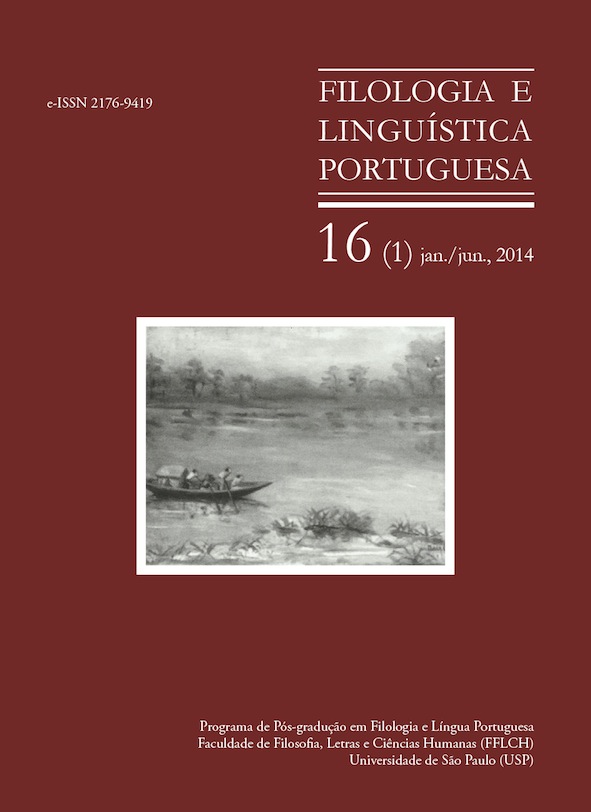Subject position and social position: a case of grammar competition in 19th and 20th centuries letters
DOI:
https://doi.org/10.11606/issn.2176-9419.v16i1p147-170Keywords:
Brazilian Portuguese. Subject position. Private letters.Abstract
Tarallo (1993) proposes that the turn of the 20th century is a landmark in the history of Brazilian Portuguese (BP), with the emergence of a Brazilian grammar different from the European Portuguese one specially in relation to the preference for lexical subjects, instead of null pronominal subjects and a strict Subject-Verb order (Tarallo, 1993). BP has been analyzed as a partially pro-drop language, in which the third person singular null subject is interpreted as an arbitrary subject (Holmberg, 2006, Cavalcante, 2007). One of the consequences of this change is that subjects are preferably placed before verbs, thus, it is possible to affirm that in BP VS order is restricted to unaccusative sentences. In this paper, we analyze the subject position in a sample of private letters which are part of the Corpus Compartilhado Diacrônico: Cartas Pessoais brasileiras (Shared diachronic corpus: Brazilian private letters) http://www.letras.ufrj.br/laborhistorico/). It is a sample of letters written between the late nineteenth and early twentieth century, exchanged between couples and/or among children, from the following collections: Ottoni; Oswaldo Cruz (1889-1915); Affonso Penna; Pedreira Ferraz Magalhães and Jayme-Maria. The main hypothesis of the study is that it is possible to detect grammar competition (Kroch, 1989) between the correspondents regarding the position of the subject, mainly related to the social role of the writers in question. As they are couples correspondence, even in the nineteenth century, we can see in the women's letters a pattern of VS order very similar to the current BP pattern: they are restricted to unaccusative and VS constructions; while in the letters written by men, we found different patterns of VS order. This can be explained by historical contingencies that differentiate, as we can see, the configuration of BP grammar in texts written from the nineteenth century on: through the nineteenth century until the mid-twentieth century the role of women in Brazil is restricted to household chores, whereas the men had not only the role of the provider, but in the case of our correspondents, a senator, doctor, president role. In this context, we believe that in women's letters we will find patterns closer to current BP than in men's letters.Downloads
Download data is not yet available.
Downloads
Published
2014-07-01
Issue
Section
Papers
License
Copyright is transferred to the journal for the online publication, with free access, and for the printing in paper documents. Copyright may be preserved for authors who wish to republish their work in collections.
How to Cite
Subject position and social position: a case of grammar competition in 19th and 20th centuries letters. (2014). Filologia E Linguística Portuguesa, 16(1), 147-170. https://doi.org/10.11606/issn.2176-9419.v16i1p147-170



















